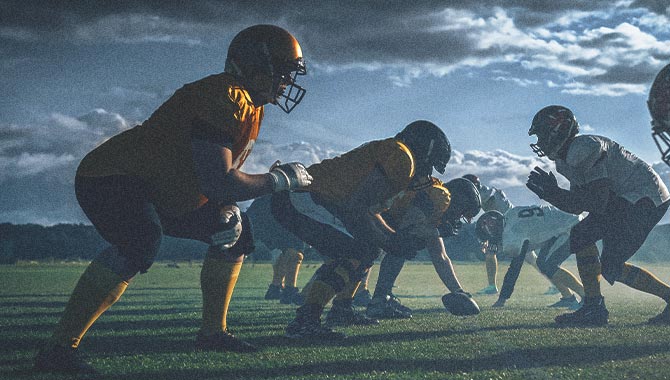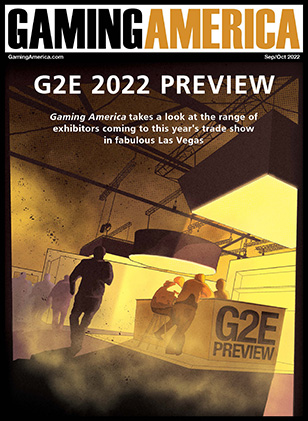
What is the state of college football and betting?
College football and sports betting is obviously not as big as the NFL. It’s carried primarily by the Southern states and states in the Northeast. I think that over time it will grow to be bigger, but you’re going to need states like Alabama, Arkansas and Mississippi to go mobile. The NCAA Southeastern Conference is the champ of college football. While you do have certain states that prevent in-state betting on college teams – like you can’t bet on Arizona State in Arizona – it hasn’t really affected things too badly. College football is still probably the third most popular area for sports betting after the NFL and basketball. In some ways it’s much bigger than the NBA.
Do you see the regulations in these Southern states changing soon?
There are a lot of questions about Arkansas, whether you can do mobile betting or not. Mississippi is in-person registration at the moment. Usually those things change, but they take a little while. Alabama, there’s not much news. Louisiana is obviously live. I think we all understand what’s going on in Florida. Texas, maybe a year or two. Oklahoma, nothing. You have Georgia, North Carolina and South Carolina which will maybe go live in the next year or two. And those are the states. There’s nothing, though, engraved in stone that these are going to go live anytime soon.
What would you say are the main differences between college betting and the NFL?
The biggest difference is the amount of games and opportunity. You have 126 NCAA Division 1 football teams and only 32 professional teams, so there’s a difference there. You also appeal to a bigger demographic in college football. Look at a state like Mississippi: it doesn’t have a pro team. These people watch college football. They live and die by the local team, whether it’s Mississippi State or Old Miss. You have other schools down there as well. So, in a lot of ways, there’s a bigger mass appeal because it really is every single state. A fun little fact that might help underscore my point: in West Virginia, which is where I went to college, when there is a home college football game, the hosting city becomes the largest city statewide for that one day. So Charleston, South Carolina is one of the biggest cities in the region and there are maybe half a million people there. Morgantown, where West Virginia University is, will host almost a million people on game days.
What sort of benefits can sports betting bring to these universities?
If you look at the deal that was just done between NASCAR and the University of Alabama, that is illustrative of what they bring. They bring money. Now that athletes can get paid in college, that’s a big deal. They’re bringing money, and that’s what they need for their athletic programs. So, you saw the deal with NASCAR and the University of Alabama, you’ll see similar deals happen. I don’t think you’ll see advertisements inside college football stadiums, but you will see college football teams and athletic departments taking sponsorship money to, say, licence their database and maybe have some ads outside the stadium.
There are controversies, though, surrounding betting at the college level. Perhaps one being that a lot of college students are under the age of 21.
Well, in certain states the gambling age for sports is 18. It’s very interesting. Because it’s a states issue, you have some that are 18 and not 21. Federal is 21. Look, college students are going to bet whether they bet legally or offshore. Every town in America has a bookie, so the college students are going to bet. I think the bigger concern might be point shaving or if athletes have been influenced to throw a game. We saw it 15 years ago in college basketball, where guys were throwing the game. But that’s a bigger issue than whether college students are betting. College students are going to bet. It’s like saying, the legal drinking age is 21 but you’re not going to go to college and not drink. That’s not going to happen.
But isn’t there a rule where students can’t bet in state?
In certain states, they don’t allow you to bet on in-state teams, so in New Jersey, you can’t bet on anything Rutgers. The lines aren’t even available. That has to do with point shaving and the manipulation of games. That’s their main concern. I don’t think they care about the students and whether or not they bet. They’re more worried about the integrity of the game.
I know March Madness is huge on the betting calendar. Would you say that basketball has been quicker on the uptake?
Football is still king. March Madness is big, but it’s not college football or football. Football is still king and it’s going to be like that for the foreseeable future. Most sports betting companies will tell you that their season begins September 1 and ends whatever the date is of the Super Bowl.
Do you anticipate massive growth with college football and the betting market?
Yes. I think over time, with more states opening up, college football will grow massively. Look at it like this: the largest alumni base for West Virginia University is Austin, Texas. The second largest is New York City. I grew up in Maryland. You look at the University of Maryland and the largest alumni base is Maryland, but the second largest is New Jersey/New York City. So, as more states open, you’ll have alumni who still care and follow their schools and they are going to bet on their teams. That will continue. There’s more upside in college football than NFL because of that, because you have people spread all over. You can’t tell me that if Oklahoma opens up that the University of Oklahoma and Oklahoma State won’t dominate betting. Of course they will, if you’re allowed to. You bet on what you know.
So there’s more passion behind college betting than pro football betting.
Oh, yes. There’s more passion in college sports than in pro sports. Take the University of Alabama and Auburn University. Families don’t talk to each other. You hear notorious stories. I have a good friend who went to the University of Pittsburgh and I went to West Virginia University. The week of the first NFL game this year and we’re talking light-heartedly about it. We both have our NFL teams – he likes the Steelers and I like the Commanders – but we don’t really care. College, though? We’re talking smack to each other. People have passion for it.

